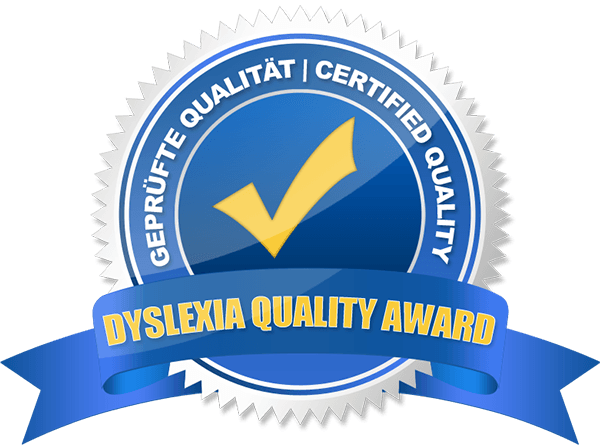Im Mai 2006 fand ab 9.00 im Audi Max ( HS 40 1 ) der Universität in Salzburg
Naturwissenschaftliche Fakultät
in A-5020 Salzburg, Hellbrunnerstr. 34,
die 12 . Fachtagung für diplomierte Legasthenietrainer und für in Ausbildung befindliche Teilnehmer statt.
Blog-Archive
Dyslexia
12. Fachtagung des EÖDL
Informationen zum Thema Legasthenie in 18 verschiedenen Sprachen
Wir haben für Sie übersetzt – damit Sie Informationen zum Thema Legasthenie vielleicht auch in Ihrer Muttersprache lesen können, oder Sie die Übersetzung jemanden geben können, damit dieser dann auch informiert ist. Unser besonderer Dank gilt zahlreichen Übersetzern, Frau Sissi Nuhl und Frau Dr. Kopp-Duller.
Übersetzungen von allgemeinen Informationen zum Thema Legasthenie sind in folgenden Sprachen kostenlos als PDF downloadbar: Bulgarisch(93kb),
…
Dyslexia on TV
 Article from Boston – 7 Healthcast
Article from Boston – 7 Healthcast
Imagine surfing on-line. Or picking up a book. Only to find letters and words all jumbled up. That’s exactly what people with dyslexia see. Now, researchers may be closer to understanding why. 7Healthcast Reporter Dr.
…
University of Denver: Discovery may cut risk for dyslexia
As is the case with many toddlers, Michael Thieme’s early spoken language was quirky. He called his older brother William „Illiam,“ for example. „He couldn’t get his W’s out,“ his mother, Annette Thieme, said. Unlike most, Michael had speech problems that persisted into kindergarten,
…
Yet more genetic clues to dyslexia discovered
 A year after scientists discovered a gene whose flaw contributes to dyslexia, scientists have identified two more such genes.
A year after scientists discovered a gene whose flaw contributes to dyslexia, scientists have identified two more such genes.
The findings strongly support the idea that many people deemed lazy or stupid because of severe reading problems may have a genetic disorder that interfered with the connections in their brains before birth.
…
Gene May Be Linked To Dyslexia
 Researchers have found a gene that may be linked to dyslexia, a reading disability that affects millions of children and adults.
Researchers have found a gene that may be linked to dyslexia, a reading disability that affects millions of children and adults.
The gene is called „DCDC2.“ Scientists have found a gap in that gene in about 17 percent to 20 percent of people with dyslexia who were studied.
…





